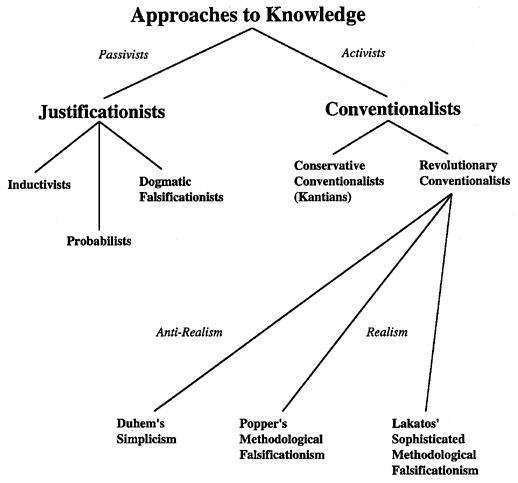
The theoretical entities of science are mere symbolic conveniences to assist us in the prediction of experience. Duhem's philosophy of physical theory is positivistic and pragmatic, having clear connections with those of Ernst Mach and Henri Poincaré. When doing science, one must not import into it metaphysical aims or ideals. Science aims for representation and is practically convenient, while metaphysics aims for explanation and corresponds to the underlying reality. Science promotes (1) economy, easing the load on one's memory; (2) classification, allowing one to select the laws one needs on a particular occasion for a particular purpose; and (3) prediction.
The symbols used in scientific laws are idealizations--they are too simple to represent completely the phenomena and their connections. Hence, laws must always be provisional. No scientific law can be said to be either true or false because every accepted scientific law has equally acceptable alternatives. No alternative is more correct than any other. (Note that Lakatos, by contrast, believes that although all theories are born false, some are more truth-like in that they represent growth of knowledge.)

Last modified March 1998
Visited times since July 2001
Comments?
Home to Metatheory
Home to Great Ideas in Personality